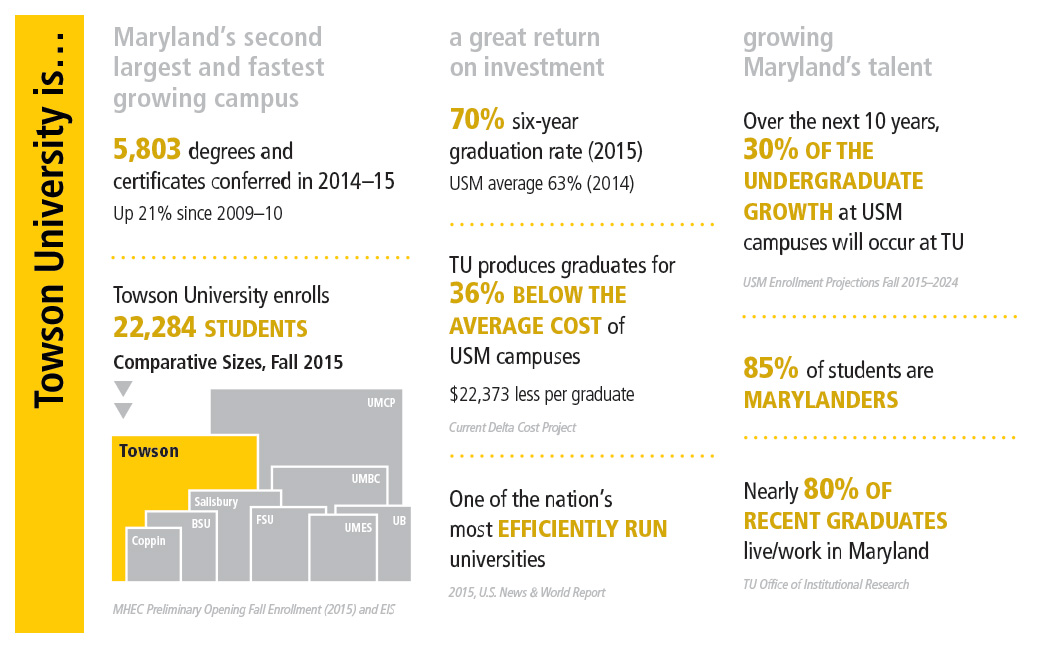
Oh, the places we’ll grow: TU’s top 6 construction priorities
Information on the new science facility, Union expansion and other key projects presented to the Board of Regents this spring
By Pam Gorsuch on June 13, 2016
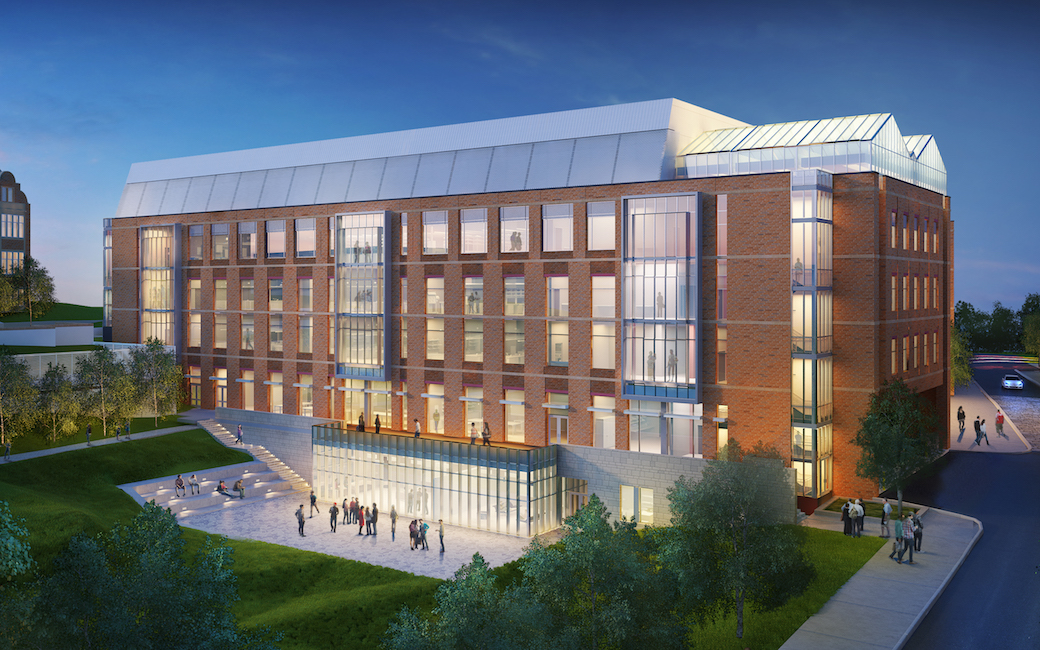
President Kim Schatzel presented Towson University’s top construction priorities to the University System of Maryland (USM) Board of Regents this spring, requesting funding approval on six key projects.
Why investing in TU makes sense for the state
It costs 36 percent less, on average, to graduate a student from TU than from any other USM campus. Towson University has grown and is expected to keep growing in areas where the state needs workers, like STEM and health professions. Plus, TU graduates stay in the state—nearly 80 percent of recent graduates live, work and pay taxes in Maryland.
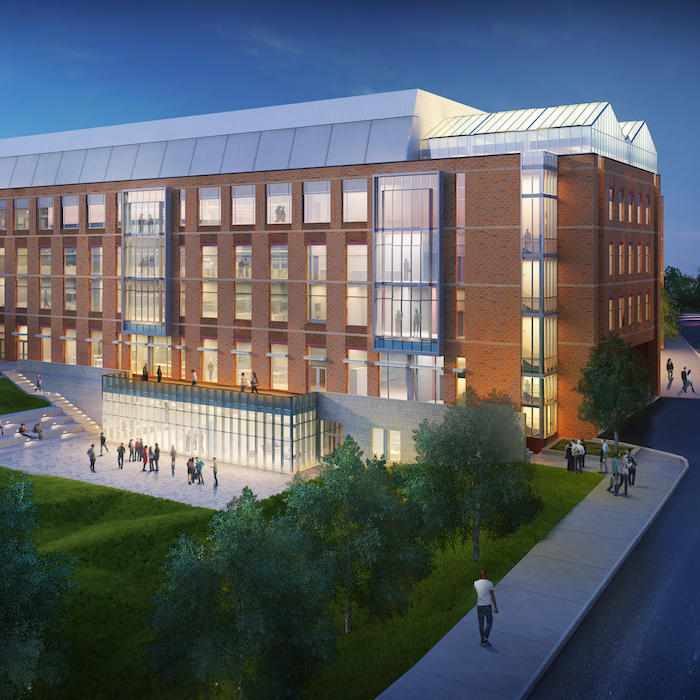
Why the new science facility is critical
TU’s STEM programs have grown by 91 percent in the last 10 years alone—and the current science facility hasn’t had a significant renovation in more than 40 years. The new building will have appropriate lab space and infrastructure to support 21st century science instruction and will support science education for all ages—from planetarium demonstrations to graduate research.
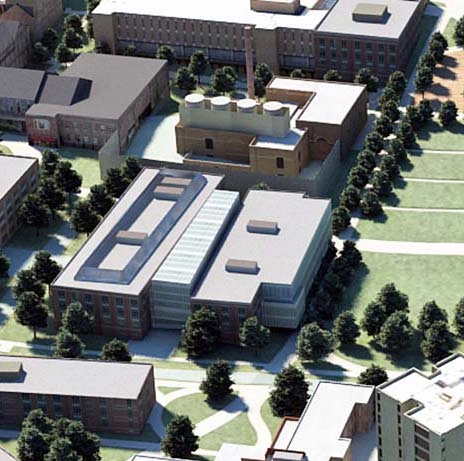
How the College of Health Professions building helps Maryland
As of this March, Maryland had 30,162 unfilled health professions jobs, which translates to $2 billion in missed wages and $228 million in missed tax dollars for the state. Maryland needs qualified health professionals. TU has the largest health professions enrollment in the USM, and we don't have the room for the students who want to enroll. A new building will help produce more health professionals to meet state workforce demand.
Efficiently renovating for visual and communications technology
The world is in the middle of a communication revolution, and effective communication is one of the top skills employers look for when hiring. Updated campus facilities will expand access to communication courses and relevant workplace technology. Renovating Smith Hall is the most efficient solution. The renovation will cost 30 to 40 percent less than creating a new building and provide space for an audio recording studio, journalism lab and television studio. Plus, it has an additional 100,000 square feet of general classroom space to help alleviate an enormous space deficit.
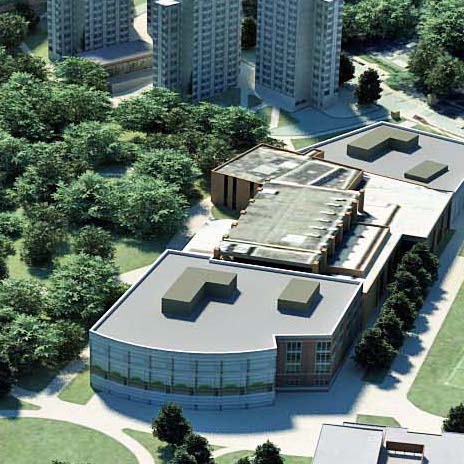
Renovating residence halls and the University Union
Residence Tower hasn’t been renovated since opening 43 years ago. It needs a facelift and new infrastructure and systems. The University Union is the heart of campus, yet it was built for just 9,000 students—many fewer than the 22,284 students currently enrolled at TU. Finally, the Glen Towers make up 40 percent of campus-owned student housing. They need to be renovated to update their aging systems and keep this critical part of student housing operational.
You can read the full capital request on the president’s website, and learn more about current construction.